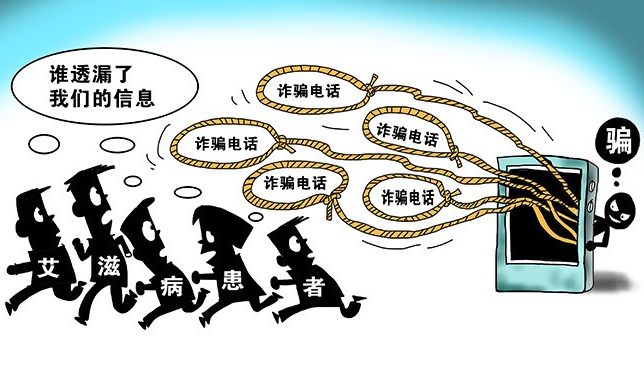An investigation has been launched by the Chinese Center for Disease Control and Prevention (China CDC) after a suspected leak of confidential information about some people infected with HIV.
近日,部分艾滋病患者的保密信息疑遭泄露,中国疾病预防控制中心已就此展开调查。
The Beijing News reported that people infected with HIV from 30 provincial regions had received phone calls from someone claiming to be a government official.
据《新京报》报道,30个省份感染艾滋病病毒的人收到了一个自称是政府官员的人的电话。
This "official" was actually a fraudster, who told patients that they would receive an allowance if they paid a fee first.
这个所谓的政府官员实际上是个骗子,他告诉患病病人,如果他们先支付一定费用,那么就会收到补助。

As of Monday evening, more than 350 HIV patients from across China had received scam calls and said their personal information had been leaked, according to the BHL China League, an online interactive platform for HIV patients.
艾滋病患者在线互动平台白桦林全国联盟称,截至周一晚间,全国已有逾350名艾滋病患者接到了该诈骗电话,这些患者表示其个人信息遭到泄露。
"The actual number of patients affected by the privacy leak and getting scam calls may be much higher than what we have received," said Bai Hua, chief of the league.
"白桦林"负责人白桦称,受隐私泄露影响,接到诈骗电话的患者的实际数量也许比我们获悉的要高得多。
The China CDC said that it had reported the case to police and had notified local CDCs, urging them to alert HIV patients to the scam.
中国疾控中心表示已向警方报案,并通知地方疾控中心,敦促它们提醒艾滋病患者警惕此类骗局。
The center will review its information systems, enhance encryption measures and cooperate with police to crack the case as soon as possible, the official said. "We hope that anyone who receives these fraudulent calls reports the matter to their local public security department immediately," the official added.
官方表示,中国疾控中心还将对信息系统进行排查,并加强相关加密措施,配合警方尽快破获案件。官员补充说道:“我们希望收到这些欺诈电话的人,立即向当地公安部门举报此事。”













